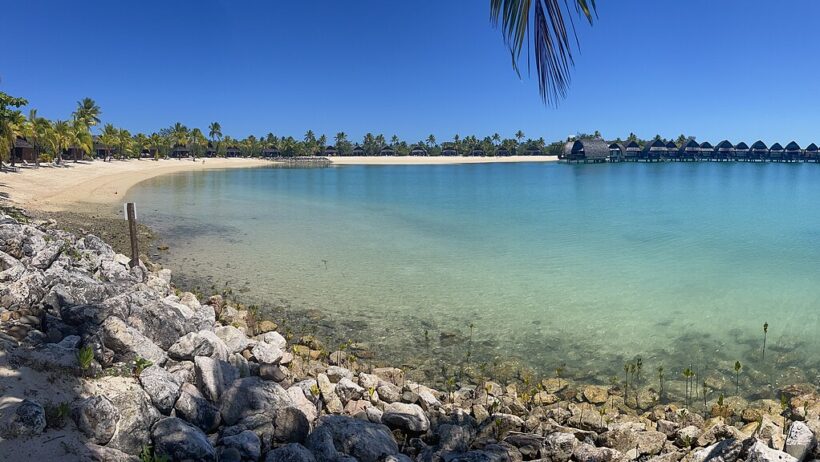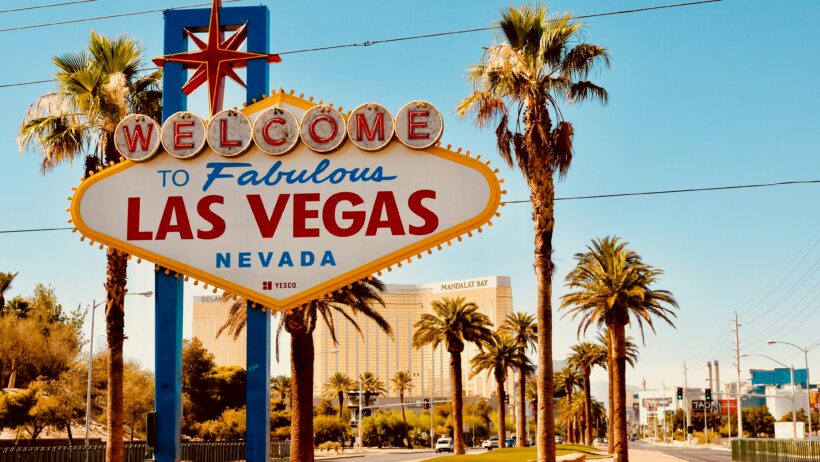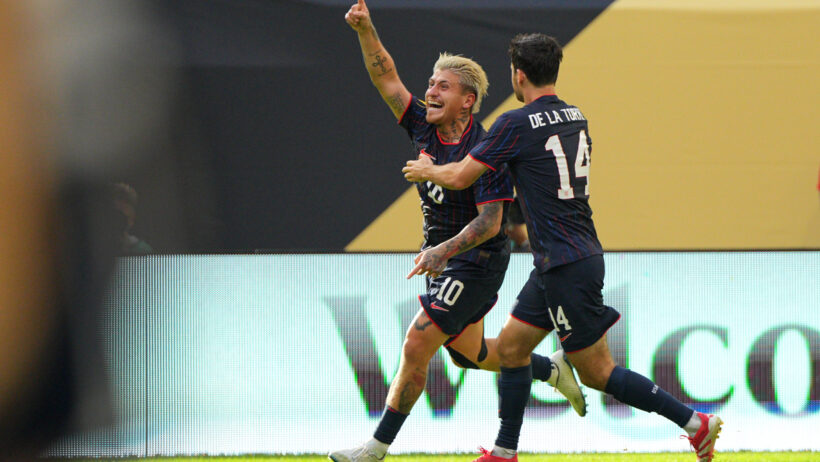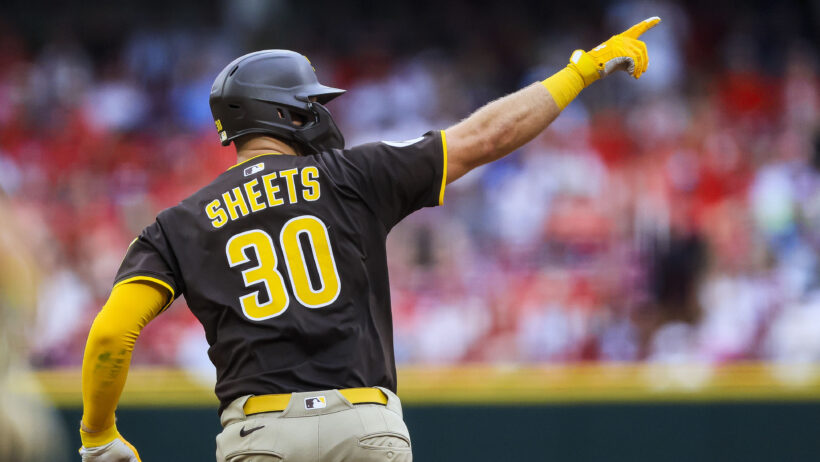Should Your Team Trade Its Best Player for Zion Williamson?
By Sascha Paruk in NBA Basketball
Published:
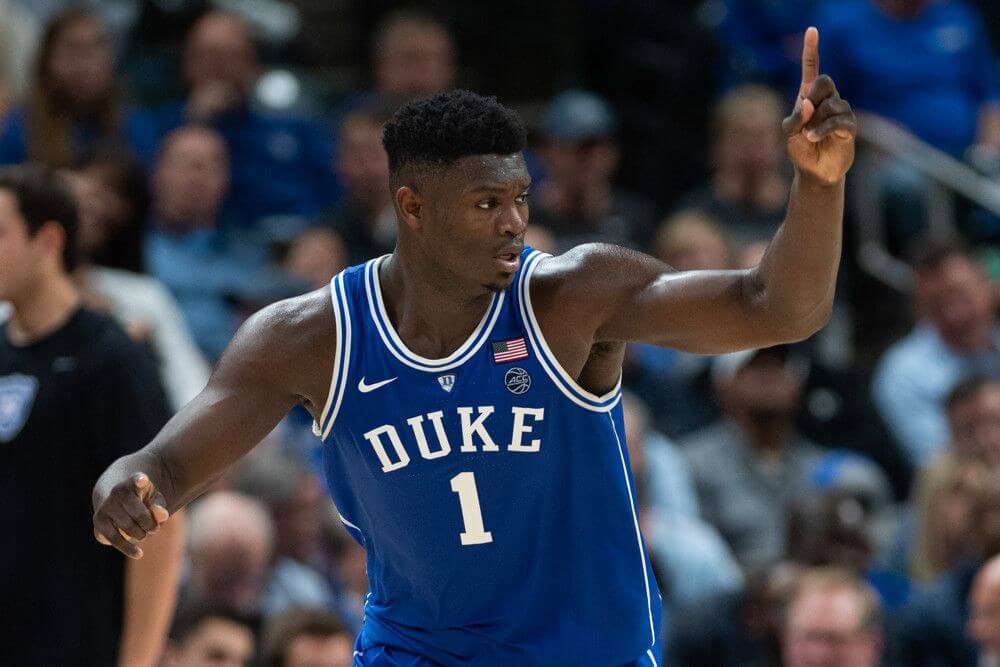
- As the NBA trade deadline approaches, we look at just how much the best prospect is worth.
- Zion Williamson could be the next Anthony Davis; does that mean he’s more valuable than the current Anthony Davis?
- How do the likes of Blake Griffin, Karl-Anthony Towns, and Damian Lillard stack-up to Duke’s freshman sensation?
The hot topics in college basketball and the NBA are lining up nicely right now. On the NBA front, trade season is in full swing. Anthony Davis wants out of New Orleans, several fringe contenders are looking to make a big splash, and others are hoping to kickstart a rebuild.
Down in the college ranks, Duke freshman Zion Williamson is dominating, literally recording the highest efficiency numbers in the history of the sport.
People hate that we talk about Zion Williamson so much & I don’t get it. His PER is 43.1. Let me say that again. It’s 43.1. ?. The avg PER is 15. Zion’s PER is the highest in recorded history of college basketball. #Facts @GetUpESPN
— Jay Williams (@RealJayWilliams) January 10, 2019
Williamson has established himself as the jewel in an otherwise lacking draft class.
The new draft lottery rules (which give the bottom-three NBA teams the same 14% chance at the #1 overall pick) have rendered the value of the worst record lower than in years past, so there’s a good chance that teams looking to rebuild via the draft wait until the offseason to make their moves. Once the draft order is known, the value of teams’ picks will become a known quantity.
Whichever team does land the #1 pick will have a choice to make: use it on Zion or deal it for a superstar.
Just how much is Zion Williamson worth? Is his unknown potential more valuable than established stars signed to long-term contracts? Let’s compare and contrast with some of the greats of today from non-title-contending teams.
New Orleans Pelicans: Anthony Davis
Davis is still just 25 years old and one of the most dominant players in the world at both ends of the court. Zion doesn’t have Davis’ height (6’10 versus 6’7) but he’s 285 pounds and has the potential to physically dominate the same way the Brow does. His athleticism is freakish.
Vicious block from Zion ? @DukeMBB pic.twitter.com/U9hPWPqX4c
— NCAA March Madness (@marchmadness) February 2, 2019
But Zion is still an unproven commodity. He’s dominating in college, in large part, because he is a vastly superior athlete. When he gets to the pros, the gap will close and he’ll merely be superior. He’ll have to develop his range (the way Davis did) in order to reach Davis-levels of superstardom.
| Anthony Davis Statistics | 2018-19 Season Average |
|---|---|
| PPG | 29.3 |
| RPG | 13.3 |
| BPG | 2.6 |
| True Shooting % | 59.5% |
| PER | 30.9 |
Obviously, having a developed superstar in the hand is worth more than one raw talent in the bush. That said, Williamson is seven years younger than Davis and the Brow only has one year remaining on his current contract. If you know you won’t be able to resign Davis, trading the #1 pick for him isn’t worth it. I’ll take seven or so years of Zion over one year of Davis in his prime.
If there’s a reasonable chance you can resign Davis … he’s the better asset [than the rights to draft Zion Williamson].
But, if there’s a reasonable chance you can resign Davis, he’s the better asset. He’s posted a PER of 27.5 or higher four times in his career and is at a career-best 30.9 this season. (For reference, LeBron James’ career PER is 27.6 and his career high is 31.7.) Davis has made All NBA First-Team three times, including the last two seasons.
In short, he has reached the ceiling that Zion aspires to, is nearing LeBron levels of greatness, and still has about five peak years ahead of him.
Verdict: Hold off. Anthony Davis > Zion Williamson
Minnesota Timberwolves: Karl-Anthony Towns
KAT and Anthony Davis have a lot in common in terms of their play. Davis is considerably better at the defensive end, but Towns is developing into his equal offensively. He shoots at a much better clip from three (40% over the last two seasons versus 33.3% for Davis) and has the height and athleticism to be matchup proof.
Karl-Anthony Towns drives and throws it down with authority ? #AllEyesNorth
?: @Timberwolves
pic.twitter.com/EpOsx5DeEZ— USA TODAY NBA (@usatodaynba) January 31, 2019
KAT doesn’t have the same PPG average, but that’s because his usage rate is considerably lower (29.8 for Davis versus 24.9 for Towns).
The seven-foot Towns is also two years younger than Davis (23 years old) and under contract until 2024.
| Karl-Anthony Towns Statistics | 2018-19 Season Average |
|---|---|
| PPG | 22.8 |
| RPG | 12.1 |
| BPG | 1.8 |
| True Shooting % | 60.5% |
| PER | 25.1 |
Zion has flashed the potential to shoot from distance, but he’s below 30% from the three-point line. If he never develops that part of his game — and there’s a realistic chance he won’t — he won’t ever reach the levels that Towns has already reached (and Towns is still getting better).
Again, the proven commodity here is more appealing. Zion may have a slightly higher ceiling than Towns, but also a much lower floor. When you factor in the team-control Minnesota has over KAT right now, dealing him for Zion would create negative expected value.
Verdict: Hold off. Karl-Anthony Towns > Zion Williamson
Portland Trail Blazers: Damian Lillard
Damian Lillard does not get the recognition he deserves, a product of playing in the same era as Steph Curry, James Harden, and Russell Westbrook, three of the most dominant guards in NBA history.
Last season was an exception as the 28-year-old Lillard made the All-NBA First Team for the first time in his career, averaging 26.9 PPG and 6.6 APG while recording a 59.2 TS% and leading Portland to the no. 3 seed in the hyper-competitive Western Conference.
| Damian Lillard Statistics | 2018-19 Season Average |
|---|---|
| PPG | 26.4 |
| APG | 6.3 |
| SPG | 1.1 |
| True Shooting % | 59.2% |
| PER | 24.0 |
Lillard has never had the team success of a Curry or Harden or Westbrook — especially in the playoffs — but he’s also never had the same level of talent around him. While CJ McCollum is a tremendous backcourt mate, the best frontcourt player Dame has ever played with is LaMarcus Aldridge, and that was back in 2014-15 when Wes Matthews, Robin Lopez, and Nicolas Batum rounded out the starting lineup.
A solid group, sure. But there’s never been a Kevin Durant or Paul George to balance out Lillard’s Trail Blazer teams. He absolutely has the potential to be the starting point guard on a championship-winning team, and the ice-water-filled veins to shine in crunch time.
Damian Lillard 4 Years ago
25 points 8/14 57%
6/10 from Three 60%
6 rebounds
3 assists
3 steals
1 block
1 game winning shot with .9 on the clock ⌚️#RipCity ???to end the series 4-2 and gets Portland into the 2nd round
— Quan ⌚️ (@RipCityDolla) May 2, 2018
Now for the downside. Lillard, as mentioned, is already 28 and he’s only under contract for two more years (until the 2020-21 season).
There is exactly one player in the NBA’s top 25 scorers who is over the age of 30, and his name is LeBron James. The highest-scoring 30-plus guard is Mike Conley (31) at 20.4 PPG.
Guards do not age gracefully and Lillard’s decline is closer than people realize. Portland management should only count on about 2.5 more years of truly elite point guard play from Lillard. If they have the chance, they should take a chance on the first half of Zion’s career over two or three more great years from Lillard.
Verdict: Make the deal! Zion Williamson > Damian Lillard
Charlotte Hornets: Kemba Walker
No offense to Kemba Walker, but he’s basically Damian Lillard Lite. He isn’t as good a facilitator, he isn’t as good from three, and they are about equally mediocre defenders.
Walker has never even made an All-NBA team of any sort.
Like Lillard, he has never been surrounded by great, or even good, teammates, but he’s also only made the playoffs twice in his career. Missing the playoffs in the Eastern Conference the last couple years is an embarrassment. Lillard has made the playoffs in the tougher West in five straight seasons.
| Kemba Walker Statistics | 2018-19 Season Average |
|---|---|
| PPG | 24.6 |
| APG | 5.4 |
| SPG | 1.2 |
| True Shooting % | 55.8% |
| PER | 21.1 |
Walker is also 28 years old (same as Lillard), so his best days are numbered. He is an impending free agent, to boot. As things currently stand, there is no argument that Zion is the more valuable asset. It’s a closer call if/when Kemba is signed to a long-term contract, but even then, Zion’s potential is the more valuable asset.
We have already seen where peak Kemba Walker (i.e. the player we are seeing this year) can take you, and it’s to about the no. 7 seed in the dilapidated Eastern Conference.
Verdict: Make the deal! Zion Williamson > Kemba Walker (even with a long-term contract)
Detroit Pistons: Blake Griffin
When he’s healthy, Blake Griffin is one of the most effective players in the league, especially when he’s paired with a great point guard (like Chris Paul in LA).
There’s a reason Detroit was willing to part with Tobias Harris, Avery Bradley and a first-round pick to acquire him. He is basically single-handedly keeping the Pistons in the Eastern Conference playoff race with a supporting cast that’s arguably worse than Kemba’s in Charlotte. He is 11th in the league in scoring at a career-best 26.0 PPG, has a career-high usage of 30.3%, and leads the Pistons in assists (5.3 APG).
| Blake Griffin Statistics | 2018-19 Season Average |
|---|---|
| PPG | 26.0 |
| RPG | 8.2 |
| APG | 5.3 |
| True Shooting % | 59.1% |
| PER | 21.3 |
Griffin is signed through 2022 and is due roughly $110 over the next three years. Some said he wasn’t worth the money when he first signed his current deal, but as the cap goes up, it will start to look better and better, if he can stay healthy, that is.
No official word yet on the severity of Blake Griffin’s knee injury, but – um – the video does not look good. pic.twitter.com/sUTHGml3do
— Rachel Nichols (@Rachel__Nichols) November 28, 2017
That’s a big if. Blake has only averaged 67.5 games played over the last four years due to a variety of injuries (knee, back, quad, hand, etc.) Now 29 years old, there’s a good chance his durability gets worse, not better. And even at his best, he isn’t leading his team to anything more than fringe playoff contender.
Realistically, there’s a good chance that Zion’s best season as a pro is worse than Blake’s. But given the limited ceiling, heretofore, for Griffin-led teams and the injury history, Zion is clearly the more coveted asset.
Verdict: Make the deal! Zion Williamson > Blake Griffin
Washington Wizards: Bradley Beal
Bradley Beal has taken his game to new heights in 2018-19. The 25-year-old is averaging more points (24.8 PPG), more assists (5.1 APG), and more steals (1.3) than ever, while posting the second-best true-shooting percentage of his career (57.0%) and recording his highest usage rate (28.2). He’s proving to Washington brass that he’s the more effective player than John Wall and that he has build-around potential.
On a moderately team-friendly deal through 2021, Beal’s contract situation is better than some (see Kemba Walker) but worse than others (see Karl-Anthony Towns).
| Bradley Beal Statistics | 2018-19 Season Average |
|---|---|
| PPG | 24.8 |
| APG | 5.1 |
| SPG | 1.3 |
| True Shooting % | 57.0% |
| PER | 19.5 |
While Beal is blossoming with the ball in his hands more (thanks to Wall being injured), it’s also true that he’s in his sixth season and has never had a PER higher than 20.1.
Has he definitely reached his ceiling? No. Is it likely that he’s going to get better than what we’re seeing this year? Also no.
The Beal-led Wizards are currently 10th in the East, and while they have played better since starting the season 2-9, Beal hasn’t shown enough to be considered a more valuable asset than Zion.
Verdict: Make the deal! Zion Williamson > Bradley Beal

Managing Editor
Sascha has been working in the sports-betting industry since 2014, and quickly paired his strong writing skills with a burgeoning knowledge of probability and statistics. He holds an undergraduate degree in linguistics and a Juris Doctor from the University of British Columbia.
